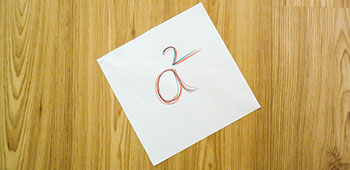
SHARING IS CARING
If our Website helped you a little, then kindly spread our voice using Social Networks. Spread our word to your readers, friends, teachers, students & all those close ones who deserve to know what you know now.
How to check if a number is a Perfect Square
Squares of all integers are known as perfect squares. In this lesson, we will discuss a very interesting Mathematical shortcut: How to check whether a number is a perfect square or not. There are some properties of perfect squares which can be used to test if a number is a perfect square or not. They can definitely say if it is not the square. (i.e. Converse is not necessarily true).
- Digital roots are 1, 4, 7 or 9. No number can be a perfect square unless its digital root is 1, 4, 7, or 9. You might already be familiar with computing digital roots. (To find digital root of a number, add all its digits. If this sum is more than 9, add the digits of this sum. The single digit obtained at the end is the digital root of the number.)
- If unit digit ends in 5, ten’s digit is always 2.
- If it ends in 6, ten’s digit is always odd (1, 3, 5, 7, and 9) otherwise it is always even. That is if it ends in 1, 4, and 9 the ten’s digit is always even (2, 4, 6, 8, 0).
- If a number is divisible by 4, its square leaves a remainder 0 when divided by 8.
- Square of even number not divisible by 4 leaves remainder 4 while square of an odd number always leaves remainder 1 when divided by 8.
- Total numbers of prime factors of a perfect square are always odd.
Now, there is a rider for this shortcut though, even if both Steps are satisfied, that does not guarantee that the number is a perfect square.
Notice that the unit digit is 1. This number could be a perfect square. Let us take the digital root.
The digital root of 623461 is 4. So it satisfies both Step 1 and 2. Still we cannot conclude that 623461 is a perfect square though.
However, this shortcut comes in really handy to eliminate obvious choices which are not a perfect square to solve competitive examination where you need to find the perfect squares.
Is 14798678562 a perfect square? Is 15763530163289 a perfect square?
- it terminates in an odd number of zeros
- its last digit is 6 but its penultimate (tens) digit is even
- its last digit is not 6 but its penultimate (tens) digit is odd
- its last digit is 5 but its penultimate (tens) digit is other than 2
- its last 2 digits are not divisible by 4 if it is even number







 Profile
Profile Signout
Signout














 Quiz
Quiz
 Get latest Exam Updates
Get latest Exam Updates 










